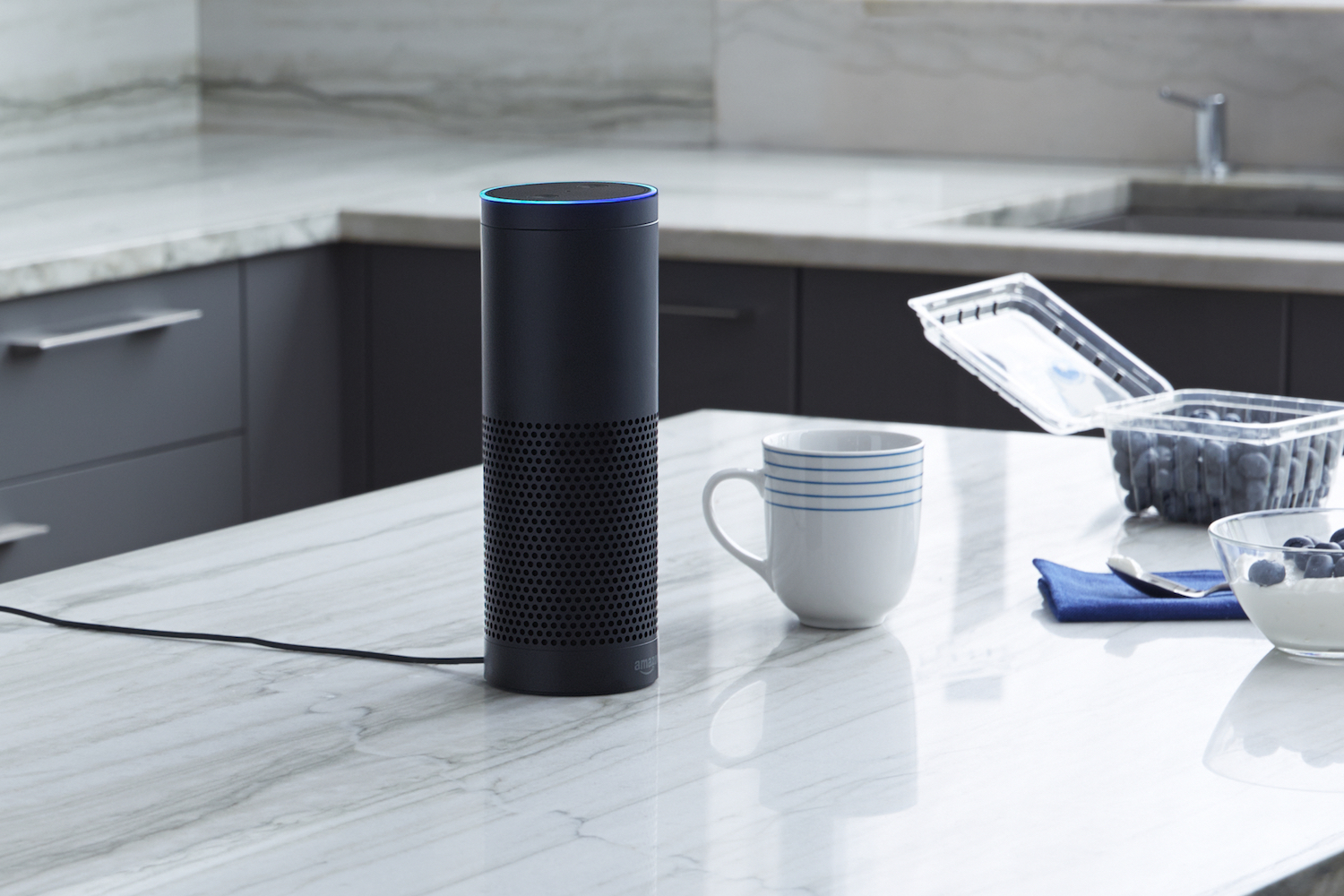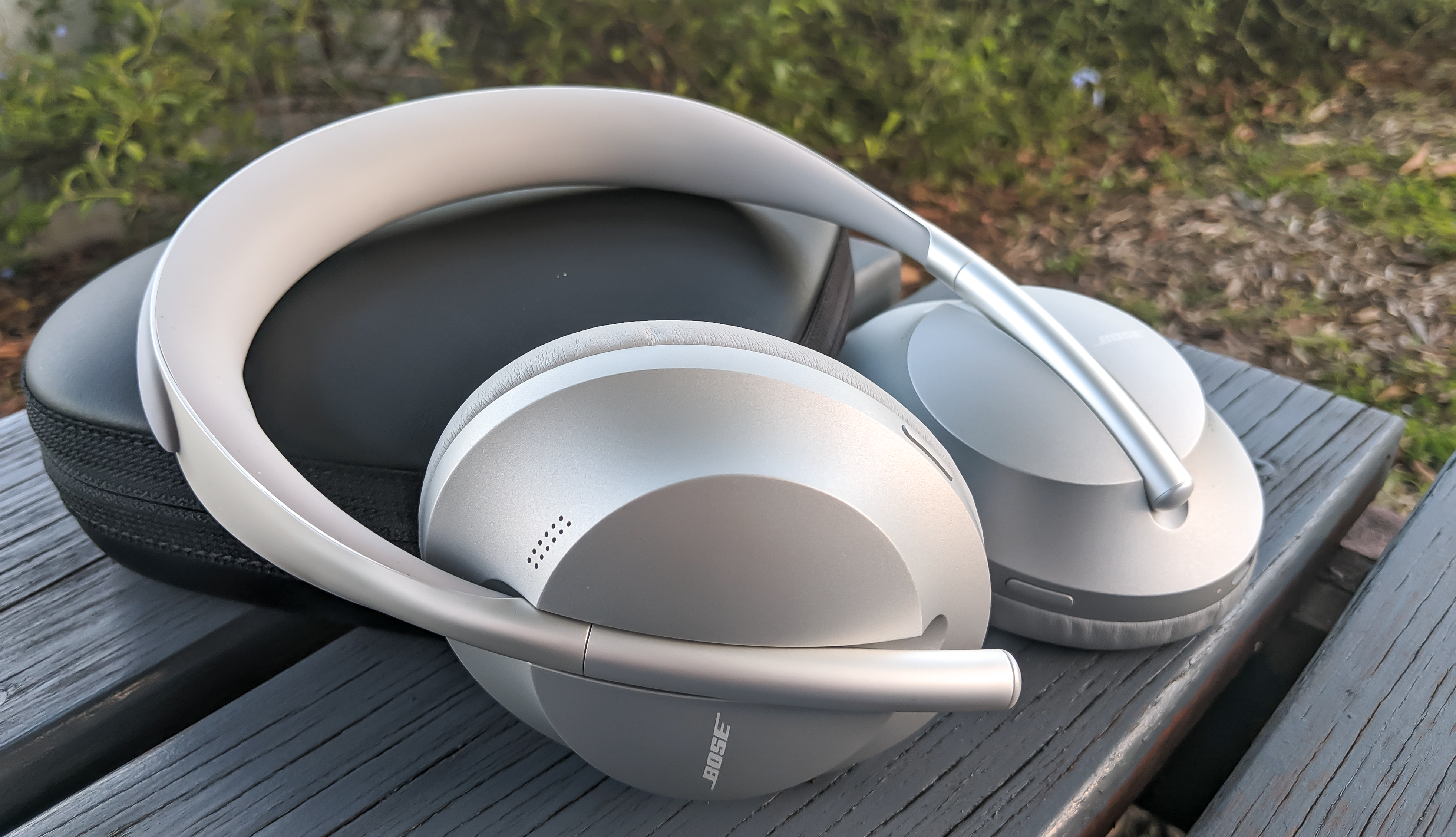Amazon's Alexa Holds the Key to the Smart Home
Ease of use, combined with excellent interoperability with other gadgets, makes Amazon's Echo the most likely candidate to popularize smart home tech.
There's a good reason why smart-home tech has yet to really take off. It's too damn confusing for the average person. Not only are device makers doing a horrible job conveying exactly what a smart home is — or could be — they're also making the concept overly confusing with competing and incompatible standards. However, Amazon's rapid integration into a large number of smart-home systems could fix a lot of those issues, and make smart-home tech a lot more accessible for everyone.

The whole concept of a "smart home" can be as simple as light bulbs you turn on and off with your phone, or as complex as simultaneously raising your blinds, turning on the lights, unlocking the door, changing the thermostat and playing your favorite Spotify station when you open your garage door as you pull into your driveway. That the smart-home concept means something different to every person makes it hard to convey in a few seconds to the average shopper at Best Buy or Home Depot. And, yes, you can pick up smart-home devices at a hardware store.
Once you get past that hurdle, there's the issue of what devices will work with each other. What's a Zigbee? What about Z-Wave? Bluetooth? Sadly, the smart-home industry shows no signs of consolidating around any one standard, which is why consumers will have to decipher the labels on product boxes for the foreseeable future.
And then there's the issue of how you can control all these things from a single interface. Most smart-home hub apps are inadequate. For example, Apple's HomeKit standard requires so many hoops to jump through that most device makers can't be bothered to go through its certification program. Even though HomeKit launched two years ago, there are fewer than 50 products that can work with it. A dedicated HomeKit app isn't going to change that.
MORE: Our Favorite Smart Home Gadgets and Systems
Amazon's Alexa — also launched about two years ago — manages to solve all these problems, which is why it's not surprising to see a huge number of smart-home device makers jumping on the bandwagon. Hundreds of products can now be activated just by saying "Alexa …."
First, by using voice commands, Alexa simplifies the interaction between the homeowner and the device. You don't have to look for a specific app; just tell Alexa what you want to do. Amazon was also smart to expand the functionality of its voice-powered assistant beyond turning the lights on and off; by letting you play music, check the weather, even order a pizza, Alexa becomes more attractive to those who might not want to have every electronic device in their house connected.
Alexa also gets around the issue of smart-home devices not working with each other, by connecting to them via Wi-Fi. Yes, in some cases this means you need to also have a hub to make sure a particular device can actually reach the cloud, but if it can get to your router, then you're in good shape.
Even router makers are getting in on the Alexa action. Securifi's upcoming Almond 3 router, for instance, not only lets you connect various smart-home gadgets to it, but also lets you create scenes that can be triggered when you talk to your Alexa-powered Echo. Even custom-installation companies, such as Control4 and Savant, are making sure their systems also talk to Alexa.
Like many new technologies, smart-home devices were created without a clear idea of how consumers would understand and use them. The Amazon Echo has the best chance right now of changing all that.
Sign up to get the BEST of Tom's Guide direct to your inbox.
Get instant access to breaking news, the hottest reviews, great deals and helpful tips.

Michael A. Prospero is the U.S. Editor-in-Chief for Tom’s Guide. He oversees all evergreen content and oversees the Homes, Smart Home, and Fitness/Wearables categories for the site. In his spare time, he also tests out the latest drones, electric scooters, and smart home gadgets, such as video doorbells. Before his tenure at Tom's Guide, he was the Reviews Editor for Laptop Magazine, a reporter at Fast Company, the Times of Trenton, and, many eons back, an intern at George magazine. He received his undergraduate degree from Boston College, where he worked on the campus newspaper The Heights, and then attended the Columbia University school of Journalism. When he’s not testing out the latest running watch, electric scooter, or skiing or training for a marathon, he’s probably using the latest sous vide machine, smoker, or pizza oven, to the delight — or chagrin — of his family.
-
ekzoo85 "The whole concept of a "smart home" can be as simple as light bulbs you turn on and off with your phone, or as complex as simultaneously raising your blinds, turning on the lights, unlocking the door, changing the thermostat and playing your favorite Spotify station when you open your garage door as you pull into your driveway. That the smart-home concept means something different to every person makes it hard to convey in a few seconds to the average shopper at Best Buy or Home Depot."Reply
This paragraph is by far the best paragraph I've ever read when it comes to Home Automation. As a marketer and owner of a Home Automation company, this was definitely an epiphany. Companies (me included) are too busy putting out the newest products, while not stepping back and realizing that they are speaking to HA enthusiasts and not the average consumer who may not have the knowledge of what it takes to create a smart home.
I wholeheartedly agree with your Amazon Echo statement. There's a reason they are putting out $50 units right now and it's because they want one in every home. They've opened themselves up to working with these different brands, and not creating a closed ecosystem like it appears Apple is trying to do.
Thanks again for writing this -- I sincerely appreciate it.
Eric
